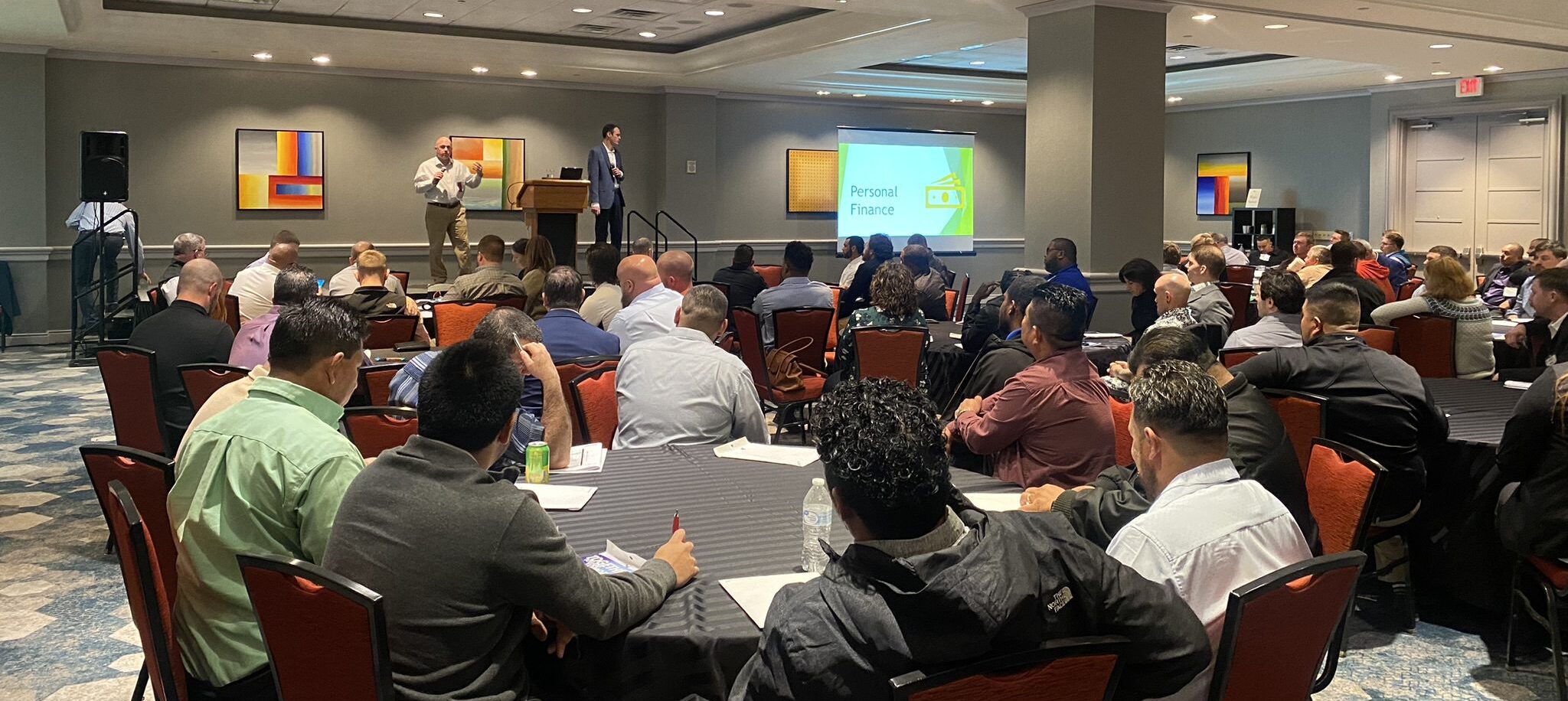Presented by Sam Wells (Maintenance Division Region Manager), Tim Schofield (Maintenance Division Project Manager), Jen Saah (VP of Accounting & Financial Risk), and David Barnes (Merrill Lynch Representative)
 This breakout session, presented on day two of MDD, was designed to share essential knowledge and skills to make informed decisions about spending, saving, and credit, and to make effective use of income to achieve personal financial success. The goal was to provide our team members with the power to help them take control of their finances and make the most of their money.
This breakout session, presented on day two of MDD, was designed to share essential knowledge and skills to make informed decisions about spending, saving, and credit, and to make effective use of income to achieve personal financial success. The goal was to provide our team members with the power to help them take control of their finances and make the most of their money.
The session started by acknowledging a simple but uncomfortable truth: While it’s easy to say, “If I made more money, I could do this or that,” the truth is that people at every income level run out of money. It really is the decisions that we make, not how much we make, that determines our financial stability. What that boils down to is saving vs. spending.
Planning = Saving
If you find yourself wondering how you can save, consider simple ways you can plan ahead to cut costs on a daily basis. Consider packing lunch instead of buying it or making coffee at home instead of stopping at Starbucks. Quit smoking—aside from the detrimental impact to your health, this is a considerable cost savings that adds up quickly. There are many simple decisions we make every day that effect our financial future. Remember, the little things add up!
Create an Emergency Fund
It may seem counterproductive, but before tackling any debt, try to build an emergency fund as soon as possible. This step comes first because you could end up deeper in debt should an emergency arise that forces you to borrow money. Start with a goal of $1,000 and work your way towards saving three to six months of living expenses. While you build your emergency fund, pay the required minimum on all your balances. Once you have built your emergency fund, stop all credit card spending and create a debt payment plan.
Eliminate Debt
Having debt can be dangerous. Credit cards, for example, can give you a false sense of security by allowing you to use money in advance. The danger comes when you use more than you can comfortably pay in full each month. If you pay only the required minimum, then you will pay interest on the remaining balance. The longer it takes to pay off, the more interest you will pay (a.k.a. compounding interest). This could result in you paying more than double the cost of your initial purchase. If you continue to make only the minimum payment, and interest accrues on the balance, there is little chance of ever paying it off. The goal is to save enough money to pay off existing debt and to only use credit cards when you know you can pay off the balance each month.
The Power of Time
When we talk about saving, we must consider the power of time—also known as the time value of money. This simply means that the earlier we start investing, the more we will have by the time we need it, especially with the effects of compounding interest. Your 401(k) retirement fund is a great example of this. The earlier you start contributing to your 401(k), the more time will be on your side.
While starting early is always better, it’s never too late to start saving! A great way to start saving is to set up an automatic transfer to your savings account with each paycheck. This way your savings will be taken care of first, and money you don’t see is money you don’t spend. You can start by saving 3-5% of your take-home pay and increase it to 10% once you have more room in your budget.
Golden Rules
Here are a few key takeaways from this session:
- Maximize your company’s 401(k) match. There is no better investment return than this! Ruppert matches up to 6% of employees’ contributions.
- Pay credit cards in full each month to avoid paying interest.
- Never use a check cashing service, as their fees range between 1%-12%. If you plan on cashing your check, we recommend you do so at a local branch of the bank listed on your check or where you have an account in order to minimize or eliminate fees. If you don’t have a bank account, consider opening one!
- Time is money—start saving as early as you can, even if it is a small amount
Remember, financial health comes from controlling our expenses, not making more money. Small victories can become big savings, especially with time.
If any of our team members or their families are having financial difficulties, please do not hesitate to reach out to your branch manager who can put you in touch with the appropriate resources.